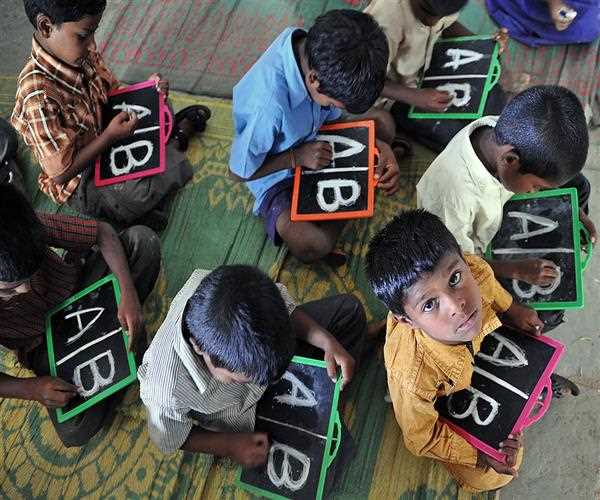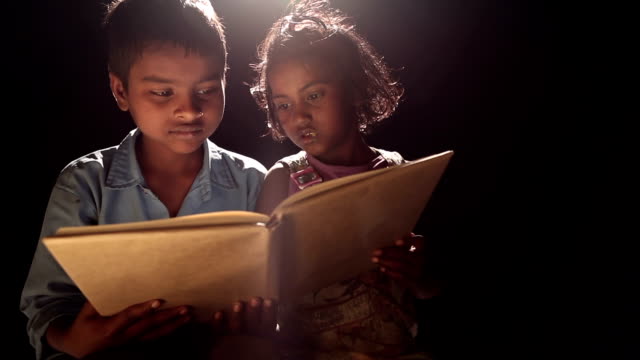
25-Jul-2023 , Updated on 7/25/2023 3:56:18 AM
Importance of child education in India
Highlights
Empowerment- Education empowers children, especially in a country like India where there are disparities. It equips them with knowledge and skills to break the cycle of poverty.
Human Capital- Investing in child education builds human capital, which is vital for a nation's economic growth and development.
Reduced Child Labor- Access to education reduces child labor as children are more likely to attend school instead of working in exploitative conditions.
Social Development- Education promotes social development by fostering values like empathy, tolerance, and inclusivity among children.
Gender Equality- Education plays a significant role in promoting gender equality as it empowers girls and helps break down gender-based stereotypes.
Health and Hygiene- Educated children are more aware of health and hygiene practices, leading to better health outcomes and reduced mortality rates.
Child education is the cornerstone of a nation's progress and development. In India, a country with a vast and diverse population, ensuring quality education for all children is of paramount importance. It lays the foundation for a brighter future, empowers individuals, and transforms communities. However, despite significant strides in recent years, India still faces numerous challenges in providing equitable and inclusive education to its young population.
India is a country with a rich history and culture, and its education system has undergone a number of changes over the years. In the past, education was largely limited to the elite, but in recent decades, there has been a growing focus on providing quality education to all children, regardless of their background.
There are a number of reasons why child education is so important in India.
Breaking the Cycle of Poverty-
Child Education acts as a potent weapon against poverty. A child who receives quality education is more likely to break free from the shackles of poverty and build a better future for themselves and their families. Education equips children with knowledge, skills, and confidence to pursue higher education and secure employment opportunities that lift them out of the cycle of intergenerational poverty.
Fostering Social Equality-
Child Education is a powerful tool to promote social equality and reduce disparities. By ensuring access to education for children from marginalized communities, including Dalits, tribal groups, and girls, India can bridge the existing gaps and promote a more inclusive society. It empowers children with the ability to dream and aspire for a brighter future, regardless of their background.
Empowering Girls and Women-
One of the most significant impacts of child education in India is its potential to empower girls and women. Educated girls are more likely to delay marriage, make informed decisions about their health and well-being, and actively participate in the workforce. Empowering women through education not only benefits them individually but also has a positive ripple effect on their families and communities.

Strengthening the Workforce-
A well-educated and skilled workforce is crucial for the growth and competitiveness of any economy. Quality education ensures that children acquire the necessary knowledge and skills to meet the demands of a rapidly evolving job market. By fostering a skilled workforce, India can attract investment, foster innovation, and drive economic growth.
Promoting Social Cohesion-
Child Education plays a vital role in promoting social cohesion and fostering a sense of national identity. By imparting values of tolerance, diversity, and respect for all, education builds a cohesive and harmonious society. It helps in eradicating prejudices and biases that can otherwise hinder the nation's progress.
Promoting Social and Economic Development-
Child education is important for social development. It helps to promote understanding and tolerance between different groups of people. It can also help to reduce poverty and inequality. Also, a well-educated workforce is essential for a country's economic growth. A study by the World Bank found that every additional year of schooling for a child in India can increase their earnings by up to 10%.
Despite the important considerations, there are a number of things that can be done to improve the quality of child education in India. These include-
- Increasing investment in child education- The government needs to increase its investment in child education. This will help to improve the quality of child education and make it more accessible to all children.
- Reforming the curriculum- The curriculum in India needs to be reformed to make it more relevant to the demands of the 21st century workplace.
- Improving the quality of teachers- Teachers in India need to be better trained and paid. This will help to improve the quality of child education.
- Providing more resources to kids- Schools in India need to be provided with more resources, such as textbooks, computers, and lab equipment. This will help to improve the quality of child education and their mental ability.
- Addressing the gender gap- The gender gap in education needs to be addressed. This can be done by providing more opportunities for girl child to enroll in school and by providing them with support so that they can stay in school.
- Promoting digital learning- Digital learning can be a great way to improve access to child education in India. The government can provide more support for digital learning by providing access to computers and the internet to kids in schools.
The importance of child education in India cannot be overstated. It is the key to unlocking the nation's potential and transforming the lives of millions. By investing in quality education, India can build a skilled and empowered workforce, reduce poverty, and foster a cohesive society. Overcoming the challenges and leveraging the opportunities will require collective efforts from the government, private sector, civil society, and individuals. A well-educated and thriving younger generation is the true asset that will shape India's future and position it as a global leader in the years to come.
By addressing these challenges and taking advantage of the opportunities, India can improve the quality of child education and create a brighter future for its children.

SEO and Content Writer
I am Drishan vig. I used to write blogs, articles, and stories in a way that entices the audience. I assure you that consistency, style, and tone must be met while writing the content. Working with the clients like bfc, varthana, ITC hotels, indusind, mumpa, mollydolly etc. has made me realized that writing content is not enough but doing seo is the first thing for it.
Join Our Newsletter
Subscribe to our newsletter to receive emails about new views posts, releases and updates.
Copyright 2010 - 2026 MindStick Software Pvt. Ltd. All Rights Reserved Privacy Policy | Terms & Conditions | Cookie Policy